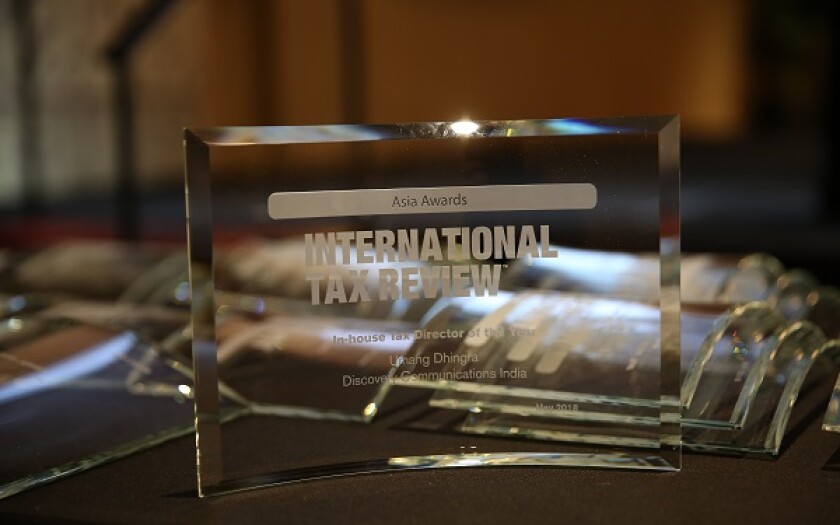After a successful event last May at the Mandarin Orchard in Singapore, the Asia Tax Awards will be held once again on Thursday May 9 2019 in Singapore.
Submissions are open now and close on Friday, December 14 2018. Entry, which is free, is by submission only. Submissions made for World Tax 2019 and World Transfer Pricing 2019 will be considered and firms will be able to nominate their peers for the first time.
Please read this explanation of the categories and methodology.
The entry forms are hyperlinked below.
The firm awards will be presented in these categories:
National tax, transfer pricing and litigation and disputes firms of the year in 18 jurisdictions:
Australia; Cambodia (no transfer pricing award) China; Hong Kong; India; Indonesia; Japan; Malaysia; Myanmar (no transfer pricing award); New Zealand; Pakistan (no transfer pricing award); Philippines; Singapore; South Korea; Sri Lanka (no transfer pricing award); Taiwan; Thailand and Vietnam.
Asia Tax Firm of the Year (no separate submission form – award will be judged according to the national submissions)
Asia Transfer Pricing Firm of the Year (no separate submission form – award will be judged according to the national submissions)
Asia Tax Litigation and Disputes Firm of the Year (no separate submission form – award will be judged according to the national submissions)
There are separate submission forms for these regional awards:
International Tax Law Firm (for law firms with a tax practice headquartered or founded outside Asia).
Best Newcomer (international tax practice (<5 years since formation)
The ceremony will include one award for company tax departments:
To win they must compose a 500-word description of their objectives for the 2018 calendar year and how they were achieved, highlighting areas where the work done by the team made a significant impact on the overall goals of the company.
Individuals
The five individual awards cover:
Please send all entries by email, using the forms hyperlinked in this article, to Anjana Haines, who is also your editorial contact for the awards.
Methodology
Between October 2018 and December 2018, companies, law firms, tax advisers, accountants and other tax service providers from the jurisdictions mentioned above can submit three examples of their best work for consideration for the national tax, transfer pricing, and litigation and disputes awards.
The awards will be judged according to:
Size (Not conclusive, though it does indicate what a tax team is capable of taking on)
Innovation (Did the advice the firm gave show something more than the straightforward answer that is commonly used?)
Complexity (Did the matter address tax issues that were out of the ordinary and what ingenuity did the firm show to solve them?)
Impact (What impact did the advice have on the taxpayer? For example, did it help them take over their biggest rival? Issue equity and debt in a particular market for the first time? Win an unprecedented judgement in court?
If you wish to attend the awards dinner in Singapore on Thursday May 9, please contact jamil.ahad@euromoneyplc.com.











